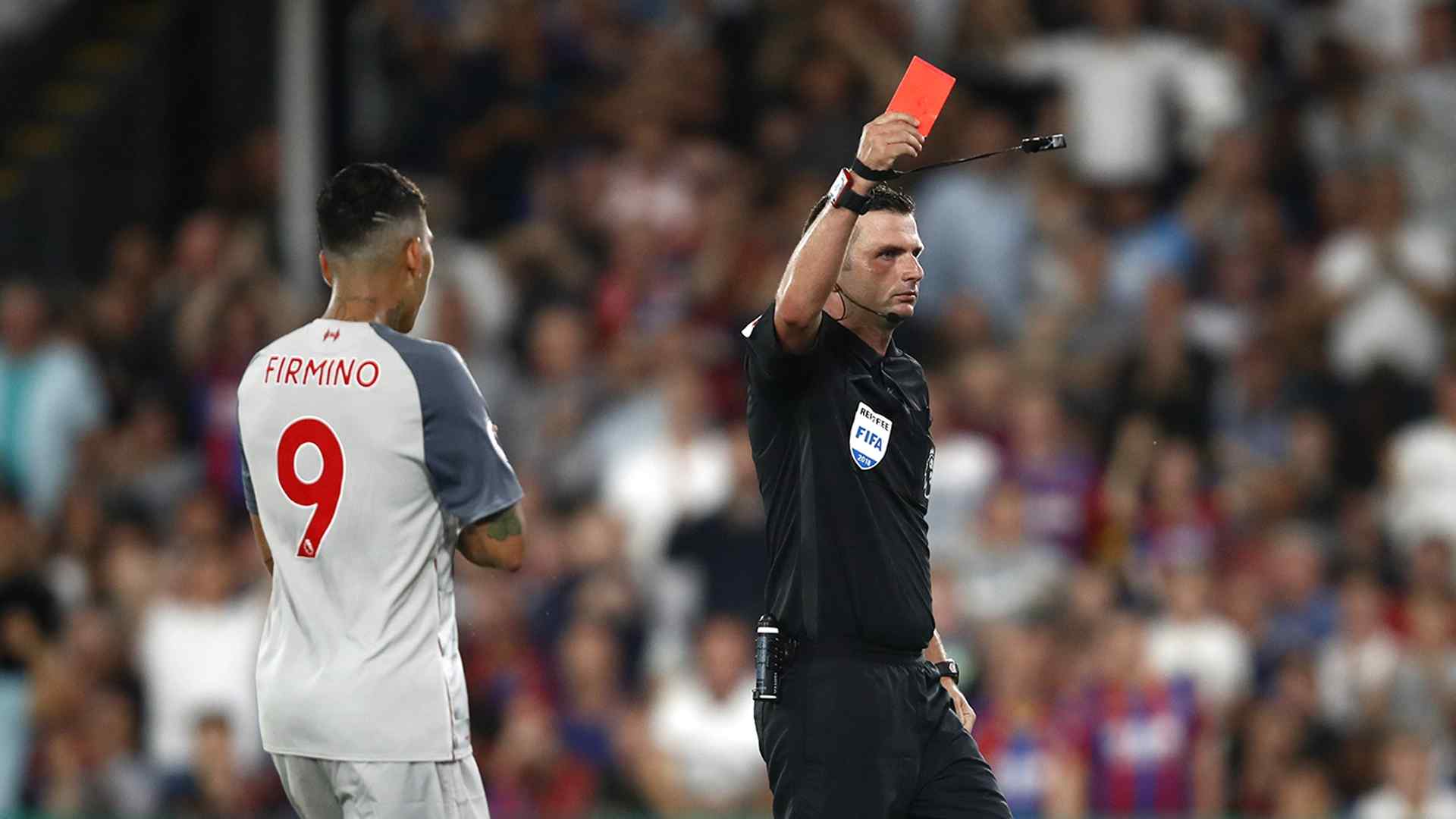
Have you ever seen a soccer player get sent off the field due to receiving a red card? It can be a confusing and concerning moment for any soccer fan.
We’ll answer your questions about what happens after the dreaded red card is shown. Read on to learn more about why players receive red cards and if they are fined when it happens!
Yes, soccer players can get fined for receiving a red card. According to FIFA rules, if a player receives two yellow cards in the same match, they will receive an automatic one-match suspension and be required to pay an additional fine. The fine amount depends on each country’s regulations and is typically determined by the national governing body or league.
| League | Average Fine for Red Card |
|---|---|
| MLS | $1,250 |
| Premier League | £1,000 |
| La Liga | €1,000 |
| Bundesliga | €2,000 |
| Ligue 1 | €1,500 |
How Many Games Do You Miss If You Get A Red Card In Soccer
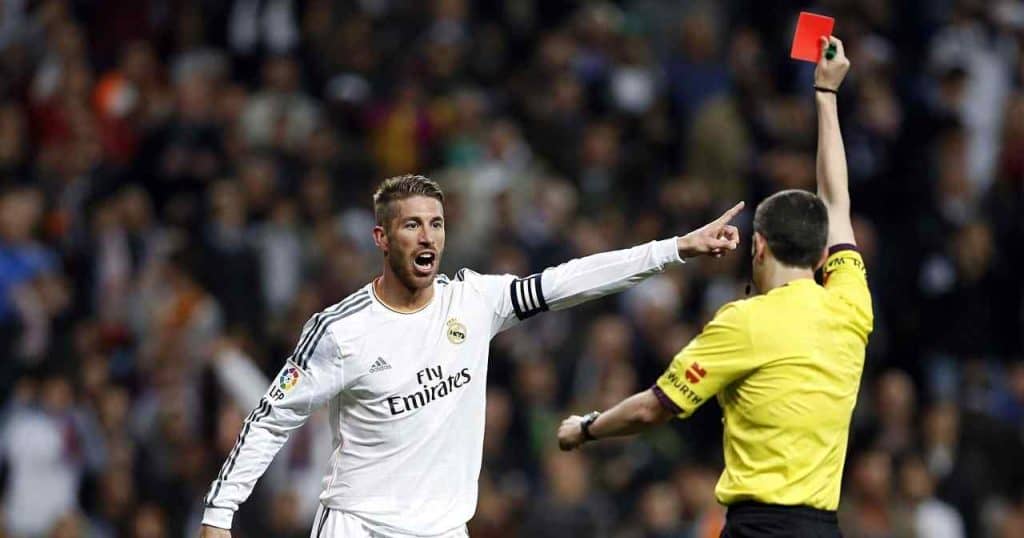
The length of the suspension for a red card can vary depending on the competition and the specific circumstances of the incident. However, in most professional leagues, receiving a red card will result in a one-game suspension, which means that the player will miss their team’s next game.
However, in some cases, a player may receive a longer suspension for a red card, depending on the severity of their actions. For example, if a player is shown a red card for violent conduct, they may be suspended for multiple games.
It’s worth noting that receiving a red card can have significant consequences for a team, as it means that they have to play the remainder of the game with one fewer player. This can give the opposing team an advantage, as they have an extra player on the field. In addition, having to play without one of their key players can be a major setback for a team, especially if they rely heavily on that player.
How Much Do Players Get Fined For A Red Card In Premier League?
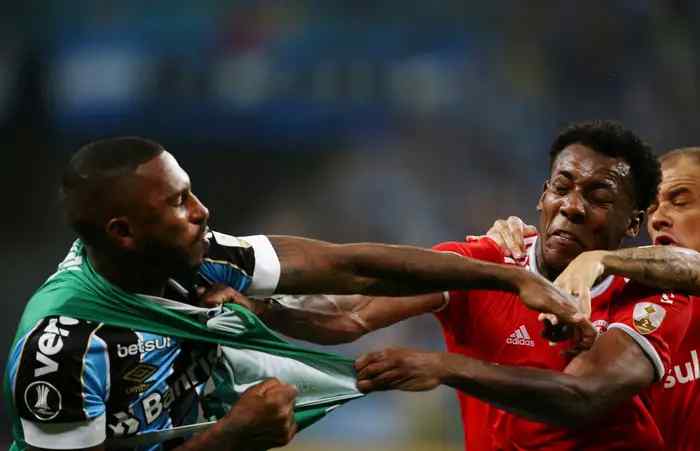
In the Premier League, a player who receives a red card is automatically fined. The amount of the fine is determined by the Professional Footballers’ Association (PFA) and is based on the player’s weekly wage.
For example, if a player earns £50,000 per week, they would be fined £1,000 for a red card. However, this fine can increase if the player has received multiple red cards in a season. For example, if a player receives a second red card within the same season, the fine is doubled to £2,000.
If a player receives a third red card within the same season, the fine is tripled to £3,000. The PFA also has the authority to increase the fine if they feel the player’s actions warrant it. For example, if a player violently confronts an official or another player, the PFA may decide to increase the fine.
It’s worth noting that the fines for red cards in the Premier League are generally much higher than those in other leagues worldwide. This is due to the higher salaries that Premier League players earn compared to players in other leagues. So, if you’re a Premier League player and you receive a red card, be prepared to pay up. But, of course, it’s always better to keep your cool on the pitch and avoid getting sent off.
FIFA Rules and Regulations Regarding Fines for Receiving a Red Card
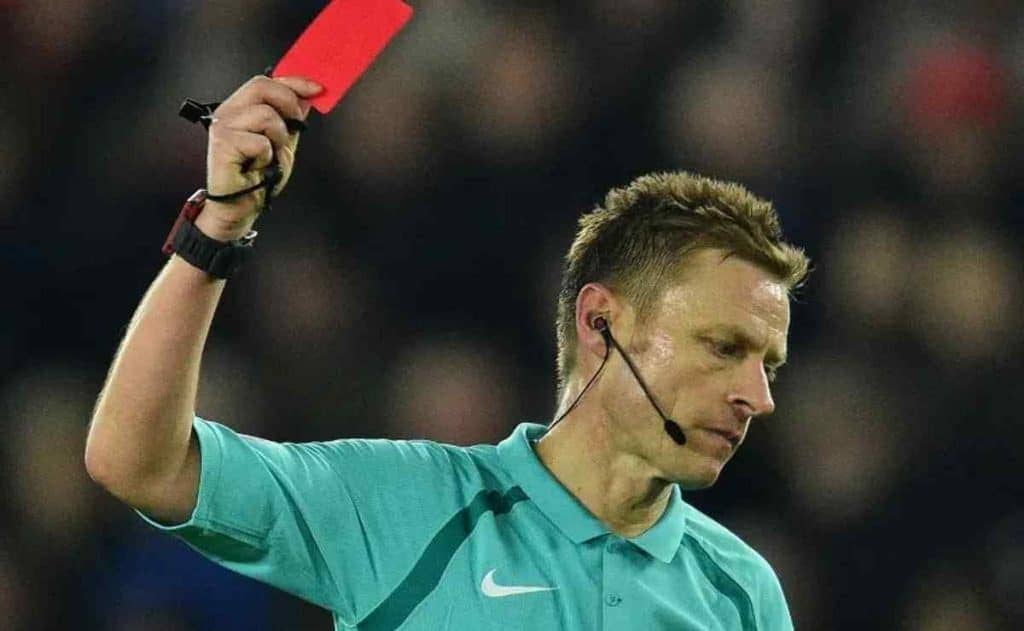
FIFA, the international governing body for soccer, has a set of rules and regulations in place regarding fines for receiving a red card.
A red card is shown to a player by the referee as a means of dismissal from the game for committing a serious offense, such as violent conduct or a professional foul. When a player receives a red card, they must leave the field of play immediately and are not allowed to participate in the remainder of the game.
According to FIFA’s Disciplinary Code, players who receive a red card may be subject to a fine. The amount of the fine will depend on the severity of the offense and may range from a few hundred to several thousand dollars.
In addition to the fine, the player may also be suspended for a certain number of games, depending on the offense. This means that they will not be allowed to play in any official matches during the suspension period.
It’s important to note that the fines and suspensions for red card offenses apply to both domestic and international competitions. This means that a player who receives a red card in a domestic league match could also face fines and a suspension in international tournaments, such as the World Cup or the Champions League.
In some cases, players may be able to appeal the fine or suspension. This can be done through the relevant national association or through FIFA’s Disciplinary Committee. However, it’s important to note that the referee’s decision on the field is generally considered final and can only be overturned in exceptional circumstances.
Examples of Professional Soccer Players Who Have Received Hefty Fines for Red Cards
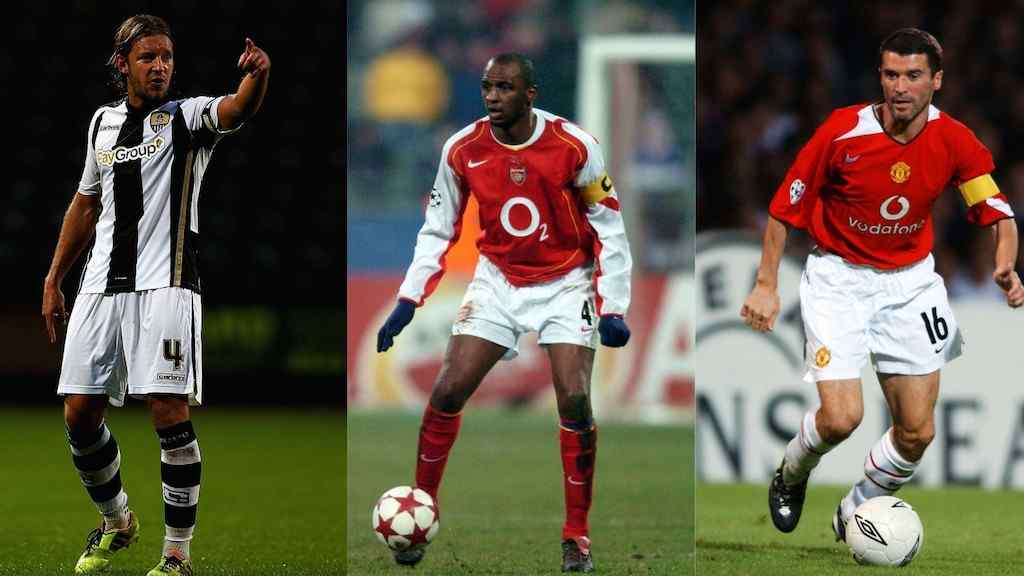
Professional soccer players are no strangers to receiving fines for their actions on the field. One type of infraction that can result in a hefty fine is receiving a red card.
A red card is a punishment given to a player who has committed a serious offense, such as violent conduct or a professional foul. When a player receives a red card, they are immediately ejected from the game, and their team must play the remainder of the match with one fewer player.
There are many examples of professional soccer players who have received hefty fines for red cards. One notable example is former Manchester United player Eric Cantona, who was famously banned from soccer for nine months and fined £20,000 in 1995 after receiving a red card for attacking a Crystal Palace fan.
Another example is former Liverpool player Luis Suarez, who was fined £40,000 and banned for 10 games in 2011 after receiving a red card for biting an opponent during a match.
In more recent years, Brazilian soccer player Neymar Jr. has received several fines for red cards. In 2019, he was fined €600 and banned for three games after receiving a red card for insulting the referee during a Ligue 1 match. In 2020, he received another red card, was fined €10,000, and was banned for two games after spitting on an opponent during a match.



